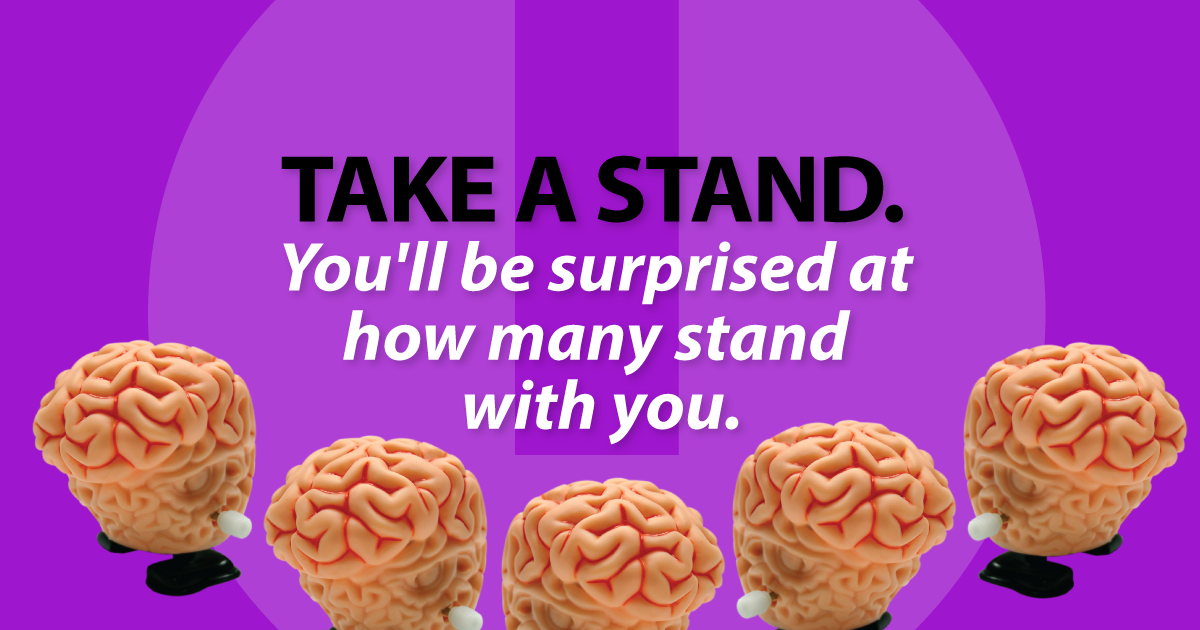
Why should I care about social responsibility?
Every time you turn around it seems that another company is taking a stand on social issues, or using part of their profits to support charitable groups and causes. Doesn’t that divert attention away from making more money? After all, isn’t that the true purpose of capitalism?
It’s all about the common good.
Social responsibility is based on the idea that everyone has a moral obligation to work and cooperate with everyone else for the benefit of society at large. As part of that society, you are supposed to act in the best interests of the community, take care of the environment, and help support others (through volunteering your time and effort, treating everyone equally and ethically, etc.).
And this “common good” approach isn’t just for individuals. While credit unions were founded on a lot of these concepts (“People Helping People” sounds a little familiar, doesn’t it?), businesses and corporations of all sizes have embraced the idea of trying to make the world a better place. Rather than simply donating money to political parties in order to make it easier to make more money, companies are finally speaking up when they see something wrong. They are actively trying to minimize their impact on the environment, working to make their hiring processes more diverse and inclusive, and considering how their actions affect others.
Plus it’s good for the bottom line.
Companies that have embraced corporate responsibility have seen increased sales while reducing employee turnover. According to Harvard Business Review, consumer packaged goods products marketed as sustainable grew 5.6 times faster than those that were not.
When it comes to investments, the “Socially Responsible Investing” trend is a Really Big Deal. Exchange-traded funds (ETFs) that comply with ethical investing standards are exploding. There are now more than 600 environmental, social and governance (ESG) funds and ETFs available to US investors, with $161B in assets under management. According to Morningstar, managed funds with over a third of their money invested in sustainable assets have largely outperformed their traditional counterparts over the last decade.
These funds and companies are not only getting a lot of attention, their stock holders are also probably sleeping better at night.
And it’s a bigger deal to more people than you might realize.
People consciously choose the products they use, and the companies they buy from, based upon brand and identity. They want to deal with businesses that fit who they are, or who they aspire to be (or both). In one study, 66% of all respondents wanted brands to take a public stand on important social values. In fact, according to the 2021 Edelman Trust Barometer, people now trust businesses to lead on societal issues more than they do the government or media sources.
Nielsen also pointed out that 73% of consumers globally say they would change their consumption habits to reduce their impact on the environment. They’re also interested in buying products that help the environment — and 41% are even willing to pay more for those products. Nearly 90% of consumers surveyed said they would purchase a product because a company supported an issue they care about. More importantly, nearly 75% said they would refuse to buy from a company if they learned the company supported an issue contrary to their own beliefs.
In other words, social responsibility, purpose, and sustainability are no longer considered a “luxury” to a large portion of your market. That is why it needs to be part of your mission. And part of the story you tell.
What people think of you is a big part of your brand.
Every day, more and more people are paying attention to companies that make the world a better place. They’re looking at what you say and comparing it to what you do. They want to know how likely it will be that you’ll live up to your part of a two-way, humanlike relationship, BEFORE they make a connection with you.
Credit unions are ideally suited to embrace social responsibility. They already empower people of ordinary means to also make a difference. But CUs will need to actually talk about things like ethics, environmental and financial sustainability, instead of assuming everyone knows that they are a force for good.
Take a stand. You’ll be surprised at how many stand with you.
- Are you scared yet? - October 22, 2024
- OMG! Who really IS our competition?!? - September 24, 2024
- Do 5-star ratings really mean anything? - August 27, 2024
